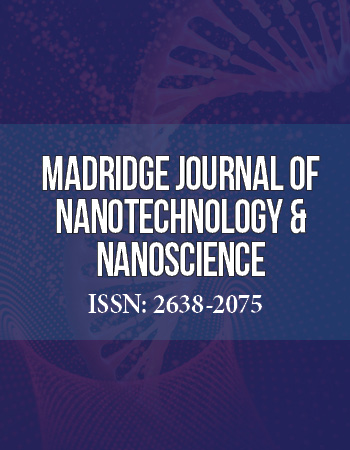2nd International Nanotechnology Conference & Expo
April 3-5, 2017 Dubai, UAE
Green synthesis of magnetic nanoparticle impregnated mesoporous CaCO3 based multifunctional nanocarrier for controlled delivery of anticancer drug
School of Engineering Sciences and Technology (SEST), University of Hyderabad, India
The use of biocompatible and biodegradable drug nanocarrier in biomedicine is becoming increasingly popular and getting significant priority over conventional synthetic nanocarriers. CaCO3 and magnetic nanoparticles (MNPs) based drug delivery nano-carriers are getting increasing attention because of their inherent biocompatibility and magnetic controllability, respectively. In this work, novel mesoporous CaCO3 based multifunctional magnetic nanocarrier (mmCaCO3 NC) have successfully been synthesized by environmental friendly biological route using waste egg shell, lemon juice, MNPs, cetyltrimethyl ammonium bromide (CTAB) and their drug loading/release behavior and in vitro cyto-toxicity assay have been studied. A detailed mechanism of formation of mesoporous mmCaCO3 NC from bulk egg shell has been proposed. The structure and morphology of mmCaCO3 NC were characterized by x-ray diffraction (XRD), and high-resolution transmission electron microscopy (HRTEM). Particles size of MNPs and mmCaCO3 NC were found to be ~10 and ~150 nm, respectively. Powder XRD, TEM, SAED, FTIR and energy dispersive spectroscopic (EDS) analyses confirmed coexistence of MNPs and CaCO3 phases in the nanocomposite. Magnetic properties of mmCaCO3 NC and MNPs were studied by vibrating sample magnetometry (VSM) technique. Magnetic measurements (field (H) dependent magnetization (M)) show MNPs and mmCaCO3 NC to be super-paramagnetic in nature. Drug loading and release behavior of mmCaCO3 NC were studied using doxorubicin as the anticancer drug. Doxorubicin loading in mmCaCO3 NC was confirmed by FTIR and UV-Vis spectroscopy techniques. A sustained and pH dependent drug release behavior was observed. Biocompatibility and cyto-toxicity of bare carriers and drug loaded carrier were studied by MTT assay. Obtained results suggest prepared nano formulation could have potential application in targeted drug delivery. The use of biocompatible and biodegradable mmCaCO3 NC, developed through a green chemistry route, in nanomedicine will be cheaper and environmental friendly.
Biography:
Mohd Qasim obtained B. Sc. (Hons) in Chemistry, M. Sc. in Physical Chemistry and MTech in Nanotechnology from the Aligarh Muslim University, India. Currently, he is pursuing PhD in Nanoscience and Technology at the School of Engineering Sciences and Technology (SEST), University of Hyderabad, India under the supervision of Dr. Dibakar Das. His research interest mainly covers development of multifunctional nanomaterials and its applications. He published several research papers in refereed Journals and conference proceedings and has presented his research work in various national and international conferences.


